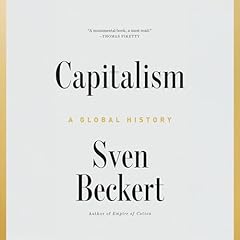
The Age of Revolution
1789-1848
Failed to add items
Sorry, we are unable to add the item because your shopping cart is already at capacity.
Add to Cart failed.
Please try again later
Add to Wish List failed.
Please try again later
Remove from wishlist failed.
Please try again later
Adding to library failed
Please try again
Follow podcast failed
Please try again
Unfollow podcast failed
Please try again
Audible Standard 30-day free trial
Select 1 audiobook a month from our entire collection of 1M+ titles.
Yours as long as you’re a member.
Get unlimited access to bingeable podcasts.
Standard auto renews for $8.99 a month after 30 days. Cancel anytime.
Buy for $20.03
-
Narrated by:
-
Hugh Kermode
-
By:
-
Eric Hobsbawm
Eric Hobsbawm traces with brilliant anlytical clarity the transformation brought about in every sphere of European life by the Dual revolution - the 1789 French revolution and the Industrial Revolution that originated in Britain.
This enthralling and original account highlights the significant 60 years when industrial capitalism established itself in Western Europe and when Europe established the domination over the rest of the world it was to hold for half a century.
©1962 Eric Hobsbawm (P)2019 Hachette Audio UKListeners also enjoyed...





People who viewed this also viewed...



whole-heartedly recommended
Something went wrong. Please try again in a few minutes.


